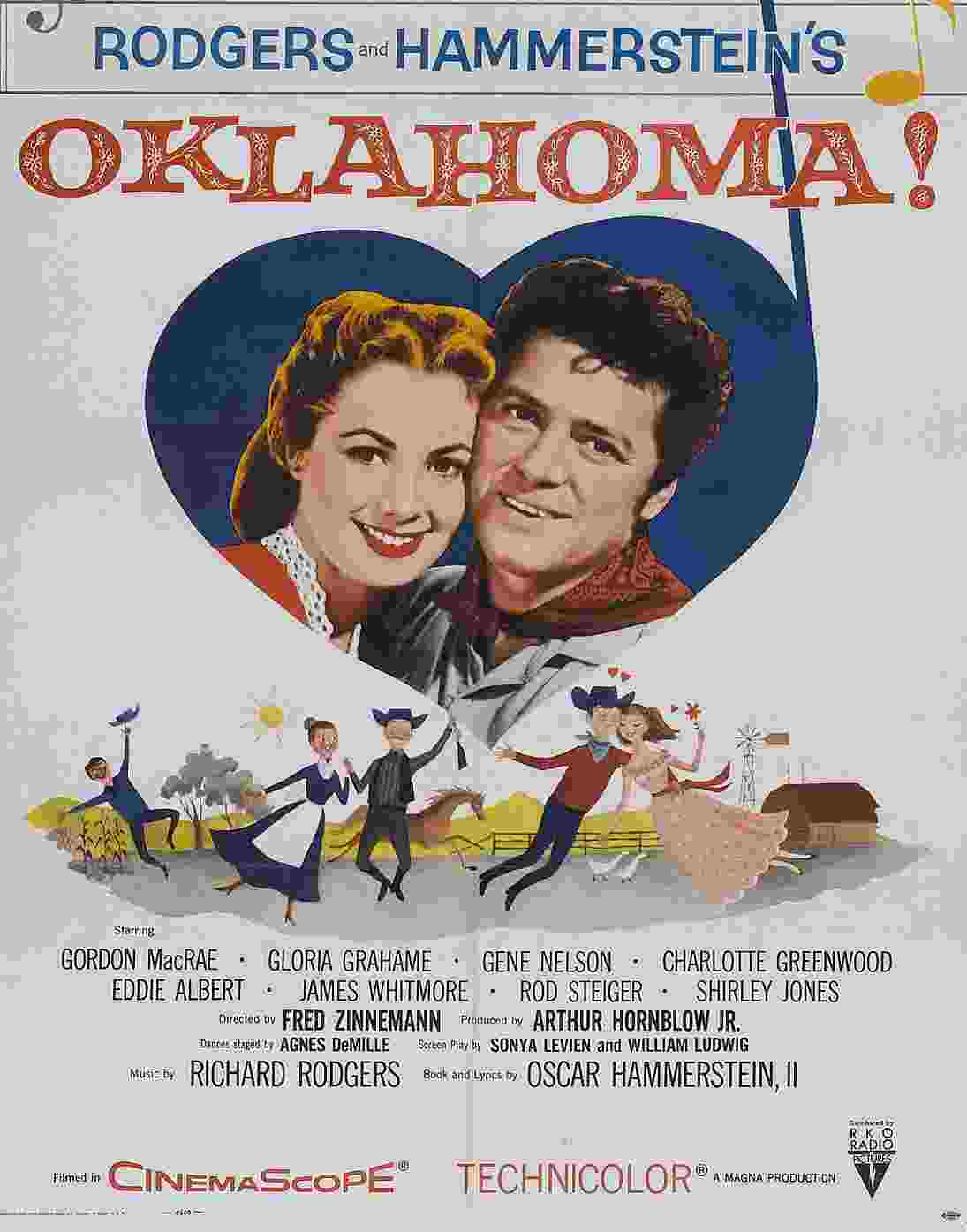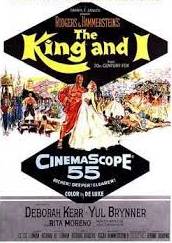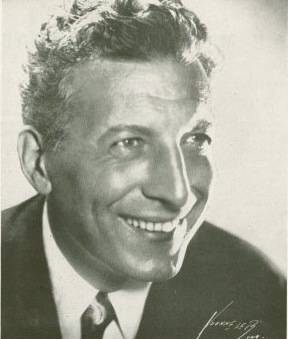Nick
Catalano is a TV writer/producer and Professor of Literature
and Music at Pace University. He reviews books and music
for several journals and is the author of Clifford
Brown: The Life and Art of the Legendary Jazz Trumpeter,
New
York Nights: Performing, Producing and Writing in Gotham
, A
New Yorker at Sea,, Tales
of a Hamptons Sailor and his most recent
book, Scribble
from the Apple. For Nick's reviews,
visit his website: www.nickcatalano.net.
Nick
Catalano podcast with Jason McDonald. The laugh
makers and why humans love to laugh.
Like
memories of music fled.
Percy Bysshe Shelley
This essay,
along with several others written in the past months,
combines critical commentary with references to Youtube
videos of the material so that readers can immediately
view programming and choose offerings for themselves.
PBS in
the Great Performances series recently brought to the
screen a 2 1/2 hour show celebrating the 80th  anniversary
of the initial Rodgers and Hammerstein II collaboration
- Oklahoma! What was instantly intriguing was that this
American musical was produced in London at the venerable
Royal Drury Lane Theater, a majestic venue seating over
2000 overwhelmingly appreciative patrons.
anniversary
of the initial Rodgers and Hammerstein II collaboration
- Oklahoma! What was instantly intriguing was that this
American musical was produced in London at the venerable
Royal Drury Lane Theater, a majestic venue seating over
2000 overwhelmingly appreciative patrons.
All of the
R&H productions were represented by performances
featuring both American and British singers, actors
and dancers. The show presented a concert version of
various scenes and music in front of an outstanding
orchestra together with guest commentators: Rita Moreno,
the original Tuptim in the film The King and I (telling
the audience that she shouldn’t have really gotten the
part) and Andrew Lloyd Webber praising the talent of R&H to the heavens.
R&H to the heavens.
Long ago
I directed performances of South Pacific and The King
and I and, in these productions I was able to relive
their greatness and re-experience interesting minutiae
about their compositional history. After scoring immense
success with their first show Oklahoma! followed by
another smash -- Carousel -- R&H began tackling
controversial subjects often in conflict with producers,
but were nevertheless able to win out because of their
huge international triumphs and accompanying fame.
In South
Pacific, produced in 1949, they were able to not only
depict the hardships of WWII but also focus on an unusual
love affair involving racial prejudice, not a popular
topic in 1949 America. For the male lead they needed
an older European singer with a rich basso voice. This
character -- Emile de Becque -- falls in love with Nellie
Forbush, a much younger American nurse. And for R&H
there was only one singer on the planet -- the great
Met Opera basso Ezio Pinza -- and they managed to sign
him. In addition to having one of the rarest voices
in the world, Pinza’s romantic looks matched his incomparable
pipes. Hollywood already had snatched him for Mr. Imperium
 opposite
Lana Turner, the hottest blonde on the screen. R&H
wrote two songs especially for Pinza’s basso richness:
“Some
Enchanted Evening” (Andrew Lloyd Webber
told the audience that it was the greatest song ever
written) and “This Nearly was Mine.” I suspect that
most younger listeners have never heard about Pinza
but his magic is available on any CD of South Pacific.
opposite
Lana Turner, the hottest blonde on the screen. R&H
wrote two songs especially for Pinza’s basso richness:
“Some
Enchanted Evening” (Andrew Lloyd Webber
told the audience that it was the greatest song ever
written) and “This Nearly was Mine.” I suspect that
most younger listeners have never heard about Pinza
but his magic is available on any CD of South Pacific.
During
pre-production of this show enormous controversy with
producers occurred over a tune “You’ve Got to be Taught”
about the misery of racial prejudice. Actually, R&H
threatened to ‘pull’ the show if the song was dropped.
In addition, the plot involved a controversial love
affair, between a G. I. and a Polynesian girl . . .
more producer objections. Nevertheless, R&H prevailed
and made history.
In The
King and I, R&H tackled an even bigger theme --
the political, social, moral, and cultural differences
between east and west during the late Victorian era.
And of course these controversial themes are accompanied
by some of the best music and lyrics ever presented
on Broadway and the West End. In this London tribute,
Maria
Friedman played the part of Anna and Daniel
Dae Kim played the King. This show exemplifies R&H’s
willingness to try musicalizing international politics,
not an easy subject. It is based on Margaret Landon’s
1944 novel Anna and the King of Siam which is in turn
derived from the memoirs of Anna Leonowens, governess
to the children of King Mongkut of Siam in the 1860s.
The musical’s plot relates the  experiences
of Anna, a British schoolteacher who is hired as part
of the King’s effort to modernize his country. The relationship
between Anna and the King is marked by conflict through
much of the piece, as well as by a love to which neither
can admit - a psychological struggle rarely seen in
Broadway musicals.
experiences
of Anna, a British schoolteacher who is hired as part
of the King’s effort to modernize his country. The relationship
between Anna and the King is marked by conflict through
much of the piece, as well as by a love to which neither
can admit - a psychological struggle rarely seen in
Broadway musicals.
A central
section of the production features a ballet produced
by Tuptim, one of the King’s young feminine properties
who is secretly in love with an outsider, Lun Tha. In
the ballet Tuptim relates the story of Uncle Tom’s Cabin
where a tyrannical American slave owner Simon Legree
utilizes his power over women similar to the way the
Siamese King wishes to punish a disloyal Tuptim. The
irony is not lost on Anna but the King is outraged at
her disloyalty.
Throughout,
it is the rich talent of R&H that this production
focuses on with its cast of multinational dancers and
singers. Reference is made to the aesthetic philosophies
of the creators and film clips featuring each speaking
about his work are included. Hammerstein’s commentary
on the art of songwriting reveals the fastidiousness
of their collaboration. His poetical lyrical subtlety
is at work when Nettie delicately reveals what will
happen on her honeymoon night in the show Carousel.
Also, in this show another psychological struggle is
portrayed as Billy Bigelow and Julie Jordan sing “If
I Loved You,” telling themselves
that even romantic love cannot always help in the revelation
of their deepest secret thoughts
‘Streaming,’
the process of delivering audio, video and other multimedia
content to a device over the Internet in real time,
is a constantly changing reference for cable subscribers
everywhere. The reference I made previously was to the
original London production. There also exists the PBS
special, which is an edited version of the original,
but contains interviews with performers which provide
further insight into the R&H oeuvre. This PBS special
will be of special value to writers, musicologists and
musicians.